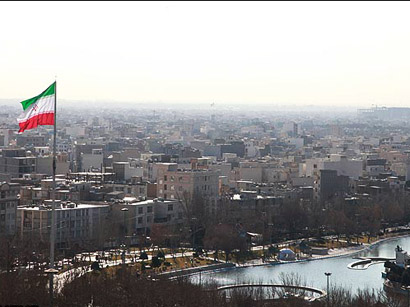Baku, Azerbaijan, Feb. 5
By Umid Niayesh, Temkin Jafarov - Trend:
The U.S. plans to reserve its share from Iran's market for the future, vice president for international affairs at Tehran's Chamber of Commerce, Industries, Mines and Agriculture Mohammad Reza Bakhtiari Told Trend on Feb. 5.
Commenting on a warning from undersecretary of State for Political Affairs Wendy Sherman about business with Iran, Bakhtiari said that the U.S. officials' negative statements are natural, while they are interested in having a major share in Iran's market.
Sherman, who is spearheading the diplomacy with Tehran, said that the United States was warning the growing number of business delegations heading to Iran that sweeping sanctions remained in place, the Telegraph reported on Feb. 4.
"Tehran is not open for business because our sanctions relief is quite temporary, quite limited and quite targeted," Sherman told the Senate Foreign Relations Committee.
There are several political and executive problems for the U.S. administration such as pressure groups and lobbies which do not want sanctions to be lifted, Bakhtiari said.
These kinds of statements are intended to soften the pressure, and also the Americans plan to prevent Europe from trading with Iran, to save their own share in the Iranian market for the future, he added.
Entering the lucrative markets is a unique chance for the European countries to overcome the economic crisis, Bakhtiari remarked.
While responding a question about the French business delegation's visit to Tehran, Bakhtiari said that they had constructive negotiations in Iran which will lead to positive results.
A delegation of more than 100 French companies arrived in Tehran on Feb. 3 in the biggest demonstration of western business interest in Iran for more than a decade.
Several European business delegations have visited Iran in recent weeks after the Geneva nuclear deal, Bakhtiari said, adding that the French delegation's visit follows these visits.
For the time being, Iran-France trade turnover has reached 240 million euro, deputy-head of Iran's Trade Promotion Organization Mehdi Mir Abutalebi said on Feb. 5, adding that the trade turnover decreased by some 90 percent in last three years.
The total Iran-EU trade turnover has reached to $10 billion from $65 billion in the last 6 years, he underlined.
On Jan. 12, Iran and the P5+1 agreed on Jan. 20 as the date to start implementing the interim nuclear deal that the two sides struck in Geneva on November 24, 2013.
On Jan. 20, the United States and the European Union suspended part of the sanctions against Iran after the IAEA confirmed earlier in the day that Iran had halted its 20 percent uranium enrichment under the Geneva agreement.
Commenting on the privatization policies in Iran, Bakhtiari said that the policy continues and state share is decreasing in the country's economy. For the being time the share of state-run companies from the economy is about 60-70 percent, he added.
On October 2, 2013, Iranian MP, Hamid Reza Fouladgar said that in the current solar year's (started on March21) budget's revision bill, the figure of transferring state-owned companies to the private sector decreased from $14.91 billion (based on official rate of 24,800 rials per each USD) to $2.82 billion.
He went on to note that, some $6 billion worth of state-owned companies privatized during the last solar year. This indicates that the last solar year budget's privatization figure ($13.5 billions) was realized by less than 50 percent.
On September 10, 2013, Iranian media outlets reported that Iranian economy minister Ali Tayyebnia criticized the implementation of the privatization policies by the former administrations saying that just 10-15 percent of state shares have been really transferred to the private sector.
He went on to remark that some industries including petrochemical industry completely were privatized in Iran.
The private sector shares about 70-80 percent of non-oil trade in Iran, Bakhtiari said.
Edited by C.N.






